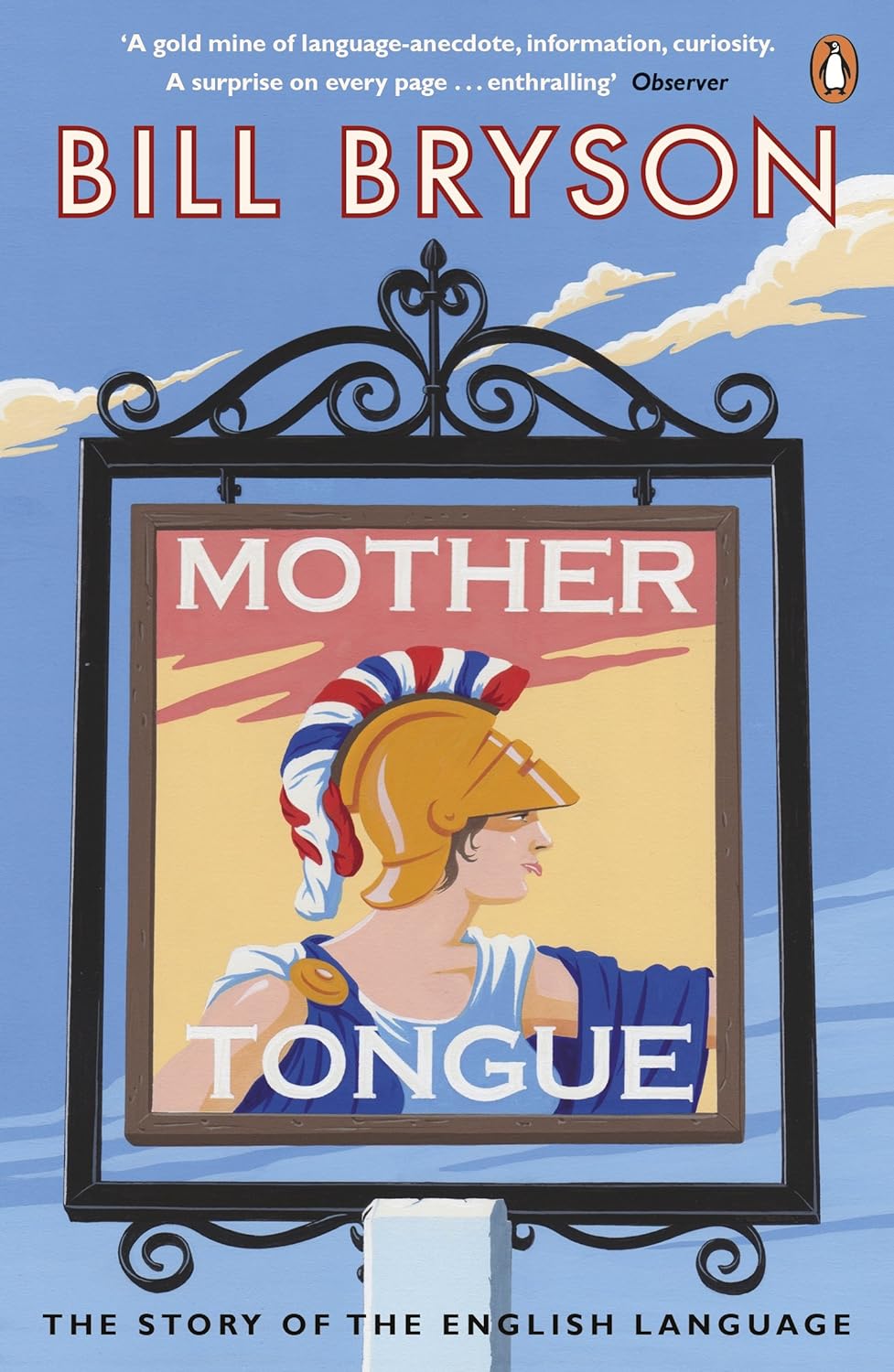About this deal
Indeed, despite the massive waves of immigration during the 19th century, American speech patterns did not diverge over time; instead, they converged. The movement of people within the US created a linguistic melting pot of intermingling, which homogenized speech patterns. As time went on, people faced social pressures to conform to “normal” American speech, especially the children of immigrants, who faced even stronger pressure to shed the accents and idioms of their parents.
Mother Tongue by Bill Bryson, Used - AbeBooks The Mother Tongue by Bill Bryson, Used - AbeBooks
American English differs in many respects from British English. Earlier, we explored the astonishing variety of dialects that can be found in the UK, even between towns that are short distances apart from one another. American speech, on the other hand, is comparatively homogenized, to such an extent that speakers on the East and West Coasts (roughly 3,000 miles apart) speak with virtually indistinguishable accents. Awful. Awful. I’m now retrospectively mad, five years later, that I once attended a talk by this man. Avoid.Throughout the later Middle Ages, English evolved organically and developed many of its more recognizable features. One such feature was uninflected verbs with stable consonants (in other words, they are mostly the same regardless of gender, tense, case, and mood). Another was the simplification of noun endings to denote plurals (almost all English nouns are today pluralized with the addition of a simple s at the end). the true story of an American lady, newly arrived in London, who opened her front door to find three burly men on the steps informing her that they were her dustmen. ‘Oh,’ she blurted, ‘but I do my own dusting.’
The Mother Tongue Book Summary by Bill Bryson - Shortform The Mother Tongue Book Summary by Bill Bryson - Shortform
It was first published in 1990 and it has not aged well. Some statistics are well out of date, Bryson using a figure of 56 million for the population of Britain, with 60 million more accurate at the time I write, for example. The political position has moved on, too. The first chapter of this book has so many mistakes that I couldn't finish it. Almost every sentence has a mistake. The sort of linguistics I like, anecdotal, full of revelations, and with not one dull paragraph -- Ruth Rendell * Sunday Times * To be fair, English is full of booby traps for the unwary foreigner. Any language where the unassuming word fly signifies an annoying insect, a means of travel, and a critical part of a gentleman’s apparel is clearly asking to be mangled.”The Mother Tongue" has the expected rambling charm of a Bryson nonfiction work. When he becomes enamored on a topic (such as the history of our houses in "At Home" or the history of our universe in "A Short History of Nearly Everything") Bryson digs up all kinds of interesting facts and stories and anecdotes and puts it all together in a delightfully interesting collection of essays. In this book, he discusses the history of the English language, but also the history of languages in general, the history of dictionaries, and many of the odd pronunciations and spellings that are so peculiar to English. I know exactly a little bit about English, and a little bit less about linguistics in general. Studied a few foreign languages, took a linguistics class or two in college. I'm what you might call a big fan of language. A dabbler. Certainly not an expert. But boy, did I find this book infuriating.
Mother Tongue by Bill Bryson | Waterstones
With America’s powerful economic and cultural influence over the world, the most likely trajectory seems to be a homogenization of English to conform to the way it's spoken in the United States. These trends are reinforced by the influences of mass media, which expose us to dialects of speech that we would never have otherwise heard. Thus, a melting pot of English, rather than a polarization of different dialects, looks to be where we’re headed. We’ve looked at the emergence of English as a dominant language of global business and politics through the British Empire and the political and cultural influence of the United States. But English is also a language of literature and oratory, capable of eloquently expressing the most powerful human emotions and desires. It possesses a number of unique properties, quirks, and complexities that set it apart from other tongues. In this chapter, we’ll explore some of the language’s unique traits that make it so rich and evocative. English Place-NamesShortform note: At its peak in the early 20th century, the British Empire occupied nearly one-quarter of the world’s total land area and counted nearly proportion of the world’s people as its subjects.) Mother Tongue is a series of essays on the origins of human language, with plenty of interesting scientific insights, then to the messy origins of English amid the various waves of invasions of the original Celtic peoples of Britain by Angles, Saxons, Jutes, Normans, Scandinavians (Vikings), and so forth, to its growing status as a global language. I enjoyed this part of the book the most, learning a lot about the origins of the language that was especially useful now that I live in England myself. I also didn't know that Latin evolved into French, Spanish, and Italian among other languages, to my embarrassment. Given the many travels we've had through Europe in the past two years, a lot of the early origins of the Celtic peoples in Europe and the migrations of various peoples across the continent and to the British isles during the Stone, Bronze, and Iron Ages is really fascinating stuff.
 Great Deal
Great Deal 